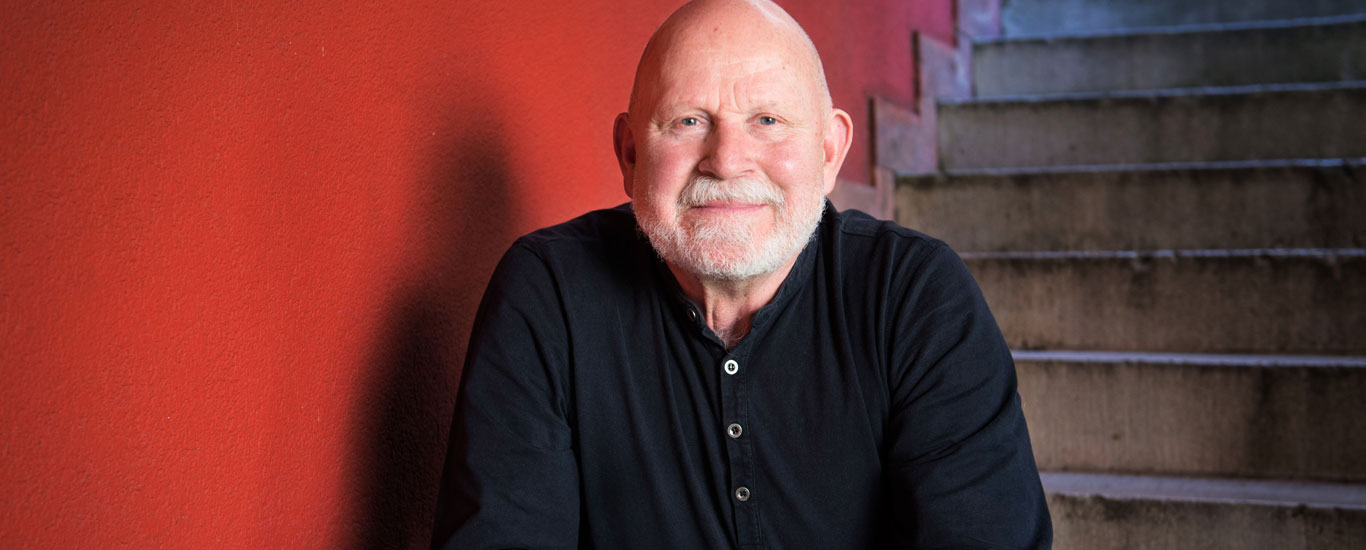Pēteris Vasks was born on 16 April 1946 in Aizpute in Latvia as the son of a Baptist pastor and began his musical education at the local music school in Aizpute. He subsequently produced his first compositions and studied the double bass at the Emīls Dārziņš Music School in Riga (1959–1964). He continued his double bass studies with Vytautas Sereika at the Lithuanian Conservatory in Vilnius up to 1970 before his one year of military service in the Soviet Army. His orchestral career had already begun as early as 1961 as a member of various symphony and chamber orchestras, including the Latvian Philharmonic Orchestra, the Lithuanian Philharmonic Chamber Orchestra and the Latvian Radio and Television Orchestra. From 1973 to 1978, Vasks additionally studied composition with Valentin Utkin at the Latvian Music Academy in Riga. During the following years, he was a music teacher in Salacgrīva, Zvejniekciems und Jelgava and has taught composition at the Emīls Dārziņš Music School in Riga since 1989.
During the Soviet period, Vasks suffered under the repressions of Russian cultural doctrine due to his beliefs and artistic convictions, but the Latvian composer’s works have swiftly achieved widespread recognition during the past few years. Choral music is of major importance within Vasks’s Œuvre. His instrumental works are performed around the world by renowned musicians and frequently used by choreographers.
Vasks’s compositions incorporate archaic, folklore elements from Latvian music and place them within a dynamic and challenging relationship with the language of contemporary music. His intentions are however not so much a purely poetic praise of nature or showy tone painting, but rather the pursuit of themes such as the complex interaction between man and nature and the beauty of life on the one hand but also the imminent ecological and moral destruction of the world which he expresses in musical language. Frequent reference is made to his personal biography and the recent history of suffering on the part of the Latvian people.
In 1996, Pēteris Vasks was appointed as the Main Composer of the Stockholm New Music Festival and he was awarded the Herder Prize from the Alfred Toepfer Foundation and the Baltic Assembly Prize. Vasks received the Latvian Great Music Award and was created as an honorary member of the Latvian Academy of Sciences in 1994 and a member of the Royal Swedish Music Academy in Stockholm in 2001. In 2002, the composer became an honorary senator of the Latvian Cultural Academy in Riga. In 2005, he received the Cannes Classical Award for recordings of the violin concerto Distant Light and the 2nd Symphony. In 2016 Vasks received the State Cultural Award of the Republic of Latvia and in 2019 the Honorary Diploma of the Latvian President.






